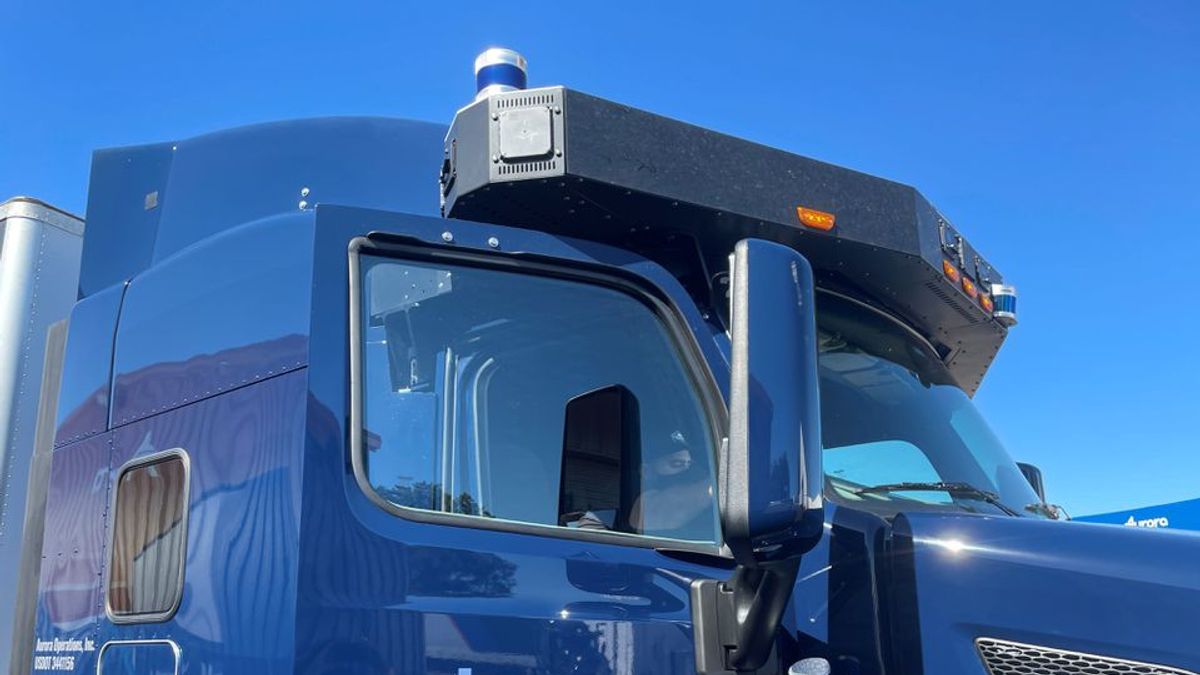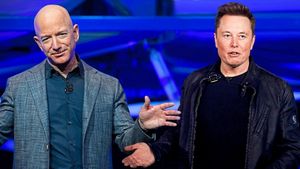JAKARTA - Self-driving startup Aurora says it has found a way to turn expensive autonomous vehicles into a profitable business. They, too, showcased their technology to investors this week ahead of going public which is expected to raise an additional USD 2 billion (IDR 28.6 trillion).
The move comes as several autonomous truck companies prepare to launch driverless routes in the coming years. They are also starting to enlist industry partners and customers in a bid to turn the long-elusive self-driving into a profitable reality.
Unlike some of its competitors, Aurora wants to provide autonomous cargo trucking and robotaxi services, saying the combination will lower costs. Aurora also believes in delivering a larger revenue stream and enabling technology transfer.
"Trucks enabled us to build a profitable and scalable business that funds further development of online transportation services and lowers hardware costs," said Sterling Anderson, co-founder, and chief product officer of Aurora, in an interview.
He spoke at the company's South Dallas truck terminal, where investors, analysts, and journalists drove one of the autonomous highway trucks with two safety drivers in place.
Autonomous vehicle (AV) companies have yet to generate significant revenue despite investors pouring billions of dollars into their development.
Autonomous trucks have emerged as the most immediate opportunity to commercialize AV, driven by growth in e-commerce and driver shortages.
Truckers currently account for more than 40% of the cost per mile, but they can only drive no more than 11 hours per day. All of these limitations do not apply to automated trucks.
Aurora, which plans to go public this year via a merger with blank check firm Reinvent Technology Partners Y with a Pro-forma market cap of USD 13 billion, has projected a break-even by 2027, but Anderson declined to specify how soon the company expects to turn a clean profit.
SEE ALSO:
They plan to launch a fully driverless truck by the end of 2023, with robotaxis following a year later.
Anderson said his ride-hailing business will initially focus on airport travel and high-margin business districts that don't require robotaxis to navigate complex urban environments.
But the four-year-old Bay Area company faces stiff competition from well-funded startups including Alphabet Inc's Waymo, Argo, which is backed by Ford Motor Co and Volkswagen AG, and Cruise, which is majority-owned by General Motors Co. It also faces competition from Chinese startup TuSimple, which went public in April.
“The ability to forge partnerships is key,” says Anderson. Aurora has partnered with truck maker PACCAR and the Volvo Group, Toyota Motor Corp, and ride-hailing company Uber Technologies Inc.
The English, Chinese, Japanese, Arabic, and French versions are automatically generated by the AI. So there may still be inaccuracies in translating, please always see Indonesian as our main language. (system supported by DigitalSiber.id)


















